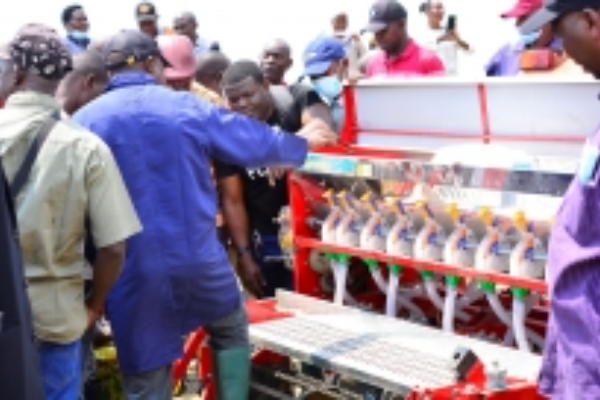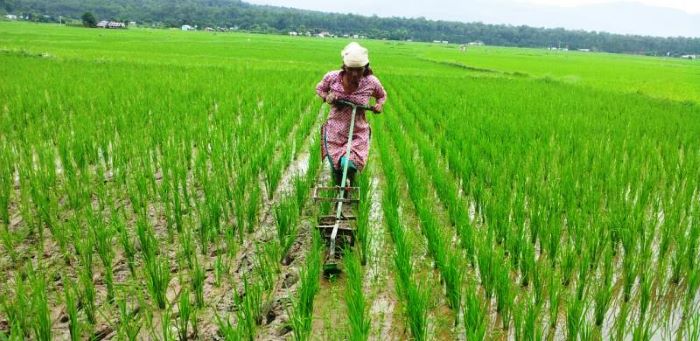Small to medium-scale rice farmers are among the beneficiaries of a weeklong training program aimed at promoting sustainable agricultural mechanization in Tanzania conducted by the Food and Agriculture Organization of the United Nations (FAO), in partnership with the Korean Ministry of Agriculture, Food and Rural Affairs (MAFRA) and the Tanzania Agricultural Research Institute (TARI).
The training, which took place in Morogoro bringing together over 50 participants, including researchers, agricultural extension officers, policymakers, machinery maintenance technicians and the growers, is part of the “Capacity Development and Experience Sharing for Rice Value Chains through South-South and Triangular Cooperation (SSTC)” project, which seeks to enhance the efficiency and productivity of rice farming in Tanzania through the adoption of modern and sustainable agricultural practices.
Funded by MAFRA, the SSTC project supports the second phase of the National Rice Development Strategy which focuses on sustainable rice production and strengthening the institutional capacity of government bodies in Côte d’Ivoire, the Philippines and Tanzania.
Hon. Jabir Makame, Gairo District Commissioner, officiated the opening ceremony of the training program on August 15 on behalf of the Morogoro Regional Commissioner. In his remarks he highlighted the importance of capacity building in the rice farming sector, noting, “Empowering experts in rice farming will significantly enhance productivity across the value chain. With modern tools, we can ease the heavy manual workload on farmers, leading to improved productivity.”
The training program’s closing ceremony was conducted on Friday last week officiated by Thomas Bwana, Director General of TARI, alongside Diomedes Kalisa, FAO National Project Officer and SSTC focal person, senior government officials, and representatives from FAO and MAFRA.

Significant milestone
In his remarks, Mr. Bwana emphasized the importance of the training, saying, “This program marks a significant milestone in our efforts to elevate rice farming in the country. By incorporating sustainable mechanization into our agricultural practices, we are laying the groundwork for a more resilient and productive agricultural sector.”
Diomedes Kalisa echoed this sentiment, emphasizing the transformative impact of the training: “The knowledge and skills acquired here have the potential to revolutionize rice farming practices. Your dedication is commendable, and I am confident that these new techniques will have a lasting impact on the communities we serve.”
In addition to the training, representatives from MAFRA and the Korean Rural Community Corporation (KRC), Mr. Min Yong Choi, donated essential agricultural equipment to TARI, including seed drillers, motorized paddy weeders, and drawn land levelers. This equipment will play a crucial role in modernizing rice cultivation and boosting productivity. Additional equipment, such as paddy transplanters, motorized paddy weeders, two-wheel tractors, rice threshers, backpack weeder machines, and push-pull weeder rollers, will be procured and distributed to TARI as part of the ongoing project. The total value of the equipment, including future procurements, is estimated at $65,000.
FAO and its partners remain committed to supporting Tanzania’s agricultural sector through innovative projects and strategic partnerships. The SSTC project exemplifies this commitment, fostering knowledge exchange and capacity building to drive sustainable agricultural development.









